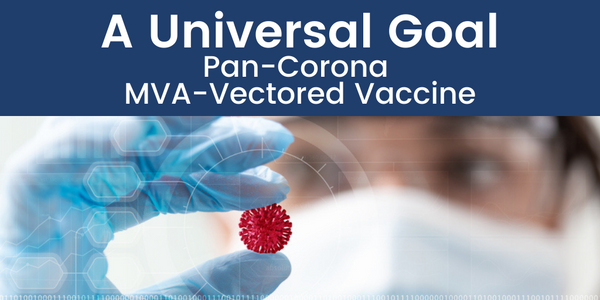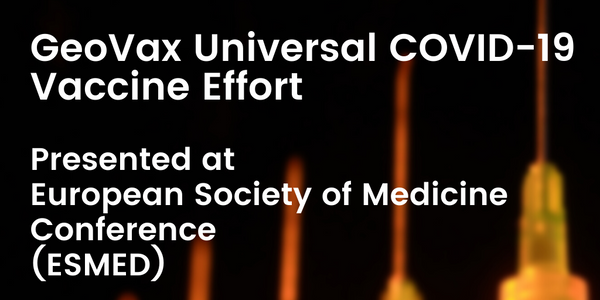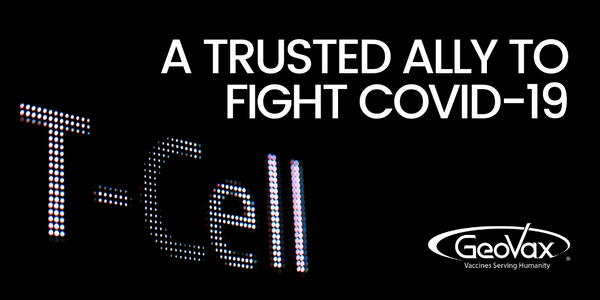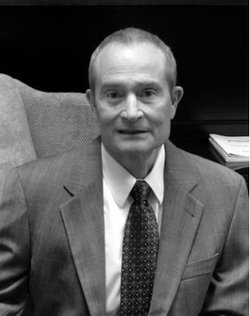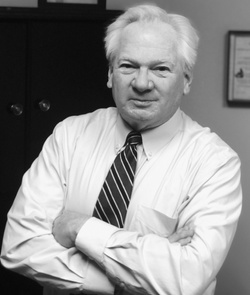Immune responses against viral infections are characterized with both antibody and cell-based effector mechanisms. Antibodies specific for viral surface proteins will block infection (referred to as neutralization) and limit the cell-to-cell spread within the body. First-generation COVID vaccines were designed primarily to induce antibodies specific to the S-protein of COVID and their effectiveness is typically measured and reported as a function of virus neutralization. Cellular responses, specifically the activity of T-lymphocytes (referred to as T-cells) directly limit viral replication and clear the viral infection from the body by killing virus-infected cells. A vaccine with optimal effectiveness will induce both antibodies and T-cells that function in a coordinated manner with a subpopulation of antibody-producing cells and T-cell remaining in the body as immunological memory; cells that are capable of responding rapidly in the face of new infections.
The COVID virus presents a challenge to the immune system because mutations can accumulate which results in the formation of variants that differ from the form of the virus used as the basis for vaccines. Variants that are not controlled by vaccine-induced immune responses are referred to as escape variants and this poses a significant challenge to vaccine design.
Mutations in the S-protein are the primary concern because these can lead to variant forms of the virus that escape the immune responses induced by the first generation vaccines, which are based on the S-protein. S-protein mutations that impact the activity of vaccine-induced neutralizing antibodies or which increase the effectiveness of the viral infection capabilities are both significant concerns. Today, we are witnessing the effects of the Delta variant which is more transmissible and resistant to antibodies induced by the first generation vaccines because of mutations in the virus gene that encodes the S-protein and alters its physical structure. A major concern is that numerous other variants have already been identified and these pose an, as yet, unknown risk to the effectiveness of vaccine-induced immune responses.
The study of T-cell responses using blood samples obtained from individuals that have recovered from COVID infections has provided data to document the importance of cellular immune responses. T-cell responses specific to many proteins other than the S-protein are readily identified. Responding CD4-T-cells predominate and this is the type of T-cell that can directly reduce viral replication and support the development and maintenance of other immune system effectors, including antibody production and CD8-T-cells that kill virus-infected cells, leading to clearance of the infection. The study of severely ill patients has demonstrated a significantly better prognosis is commonly associated with high levels of T-cell responses. Of importance to vaccine design and development efforts is the observation that T-cell responses specific to the related SARS virus, that emerged in the human population in 2003, can still be measured as memory immune responses. The induction of durable immunological memory is the goal of successful vaccination and this can be achieved through the induction of the correct T-cell responses.
The rise of COVID variants with alterations in the S-protein is not a surprise. Comparison of the genomes of coronaviruses that infect humans shows that the S-gene is one of the most variable segments of the virus. Thus, this appears to be a gene that can change without the destruction of the virus. As noted, T-cell responses are often specific to structural proteins other than the S-protein and accessory proteins. These are encoded by genes that are much more highly conserved amongst coronaviruses because they are required for virus replication. These genes, and the proteins they encode, cannot be easily changed and this conservation makes them ideal vaccine targets where virus escape from immune responses is the goal.
The design of vaccines that induce immune responses specific to multiple COVID viral proteins has been the focus of the GeoVax effort from the start. Our goal is to induce both antibody responses to the S-protein and T-cell responses to multiple additional viral proteins. This approach is feasible using the MVA viral vector, which is central to the GeoVax approach. The MVA vector allows us to produce vaccines that encode multiple viral genes at the same time, in a single vaccine construct not a mixture. Our initial efforts were focused on MVA-vectored vaccines that encoded different forms of the S-protein in combination with the membrane (M) and envelope (E) proteins. The expression of the S, M and E proteins together drives the production of virus-like particles (VLP) in the vaccinated animal. The VLP structure presents the immune system with the vaccine proteins in a form of a non-infectious virus that is authentic and concentrates the proteins into a particle. These properties of the VLP augment vaccine potency and induce immune responses that mimic those observed in natural infection, but without any risk of illness because the VLP is not infectious.
The production and evaluation of multiple S, M and E MVA vectored vaccine candidates resulted in a product termed CM-02. The MVA drives the intracellular production VLP with the S-protein stabilized in the pre-fusion conformation to induce antibodies that will neutralize the COVID virus before infection; this is the same strategy as used for all of the first generation S-protein vaccines. The VLP also contains the M and E proteins which provide the structural elements needed for VLP formation and which are highly conserved targets for the induction of T-cell responses.
The results of the initial round of small animal studies led to the selection of the CM-02 construct as the basis for the GeoVax Universal COVID vaccine effort. These results will be presented at the European Society of Medicine conference (19 Aug 2021, Berlin). This MVA-vectored vaccine is the first step towards the universal goal because it is designed to induce immune responses beyond the S-protein. It can also be the scaffold to support the design and production of experimental vaccines that will target numerous additional, conserved COVID proteins that will induce protective T-cell responses. The design and production of these next-generation vaccines is the subject of efforts proposed to the NIH and CEPI.
Design of a Universal SARS - CoV2 Vaccine Effective Against Variants
COVID-19 Vaccine Data at the European Society of Medicine (ESMED) General Assembly August 19, 2021
GeoVax Labs, Inc. is a clinical-stage biotechnology company developing human vaccines against infectious diseases and cancer using novel patented platforms. GeoVax’s Modified Vaccinia Ankara-Virus Like Particle (MVA-VLP) based vaccine platform utilizes MVA, a large virus capable of carrying several vaccine antigens, that expresses proteins that assemble into VLP immunogens in the person receiving the vaccine. The production of VLP in the person being vaccinated can mimic virus production in a natural infection, stimulating both the humoral and cellular arms of the immune system to recognize, prevent, and control the target infection. The MVA-VLP derived vaccines can elicit durable immune responses in the host similar to a live-attenuated virus, while providing the safety characteristics of a replication-defective vector.
GeoVax’s MVA-VLP development programs are focused on preventive vaccines against COVID-19, HIV, Zika Virus, and hemorrhagic fever viruses (Ebola, Sudan, Marburg, and Lassa), as well as therapeutic vaccines against multiple cancers. The Company has designed a preventive HIV vaccine candidate to fight against the subtype of HIV prevalent in the commercial markets of the Americas, Western Europe, Japan, and Australia; human clinical trials for this program are managed by the HIV Vaccine Trials Network (HVTN) with the support of the National Institutes of Health (NIH). GeoVax’s HIV vaccine is also part of a collaborative effort toward a functional cure for HIV.
Forward-Looking Statements
This release and the related conference call contain forward-looking statements regarding GeoVax’s business plans and financial results. The words “believe,” “may,” “estimate,” “continue,” “anticipate,” “intend,” “should,” “plan,” “could,” “target,” “potential,” “is likely,” “will,” “expect” and similar expressions, as they relate to us, are intended to identify forward-looking statements. We have based these forward-looking statements largely on our current expectations and projections about future events and financial trends that we believe may affect our financial condition, results of operations, business strategy and financial needs. Actual results may differ materially from those included in these statements due to a variety of factors, including whether: GeoVax and its collaborators are able to complete their work within the expected timeframes, GeoVax is able to obtain the patent protection sought, GeoVax’s COVID-19 vaccines can provoke responses to multiple COVID-19 antigens, and those vaccines can be used effectively as a primary or booster to other COVID-19 vaccines, GeoVax’s viral vector technology adequately amplifies immune responses to cancer antigens, GeoVax can develop and manufacture its vaccines with the desired characteristics in a timely manner, GeoVax’s vaccines will be safe for human use, GeoVax’s vaccines will effectively prevent targeted infections in humans, GeoVax’s vaccines will receive regulatory approvals necessary to be licensed and marketed, GeoVax raises required capital to complete vaccine development, there is development of competitive products that may be more effective or easier to use than GeoVax’s products, GeoVax will be able to enter into favorable manufacturing and distribution agreements, the impact of the COVID-19 pandemic continues, and other factors, over which GeoVax has no control. Further information on our risk factors is contained in our registration statement on Form S-3 and the periodic reports on Form 10-Q and Form 10-K that we have filed and will file with the SEC. Any forward-looking statement made by us herein speaks only as of the date on which it is made. Factors or events that could cause our actual results to differ may emerge from time to time, and it is not possible for us to predict all of them. We undertake no obligation to publicly update any forward-looking statement, whether as a result of new information, future developments or otherwise, except as may be required by law. Contact: GeoVax Labs, Inc. investor@geovax.com 678-384-7220
For more information, please visit www.geovax.com or follow us on Twitter at @Geovax_News and LinkedIn.


